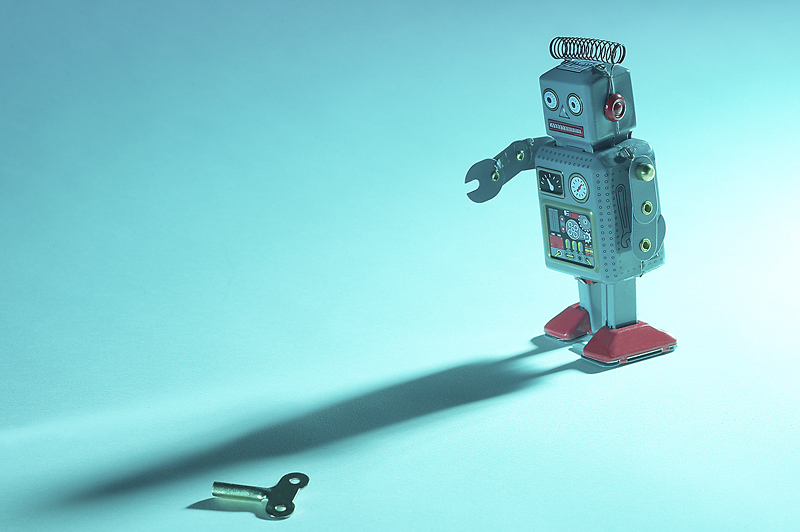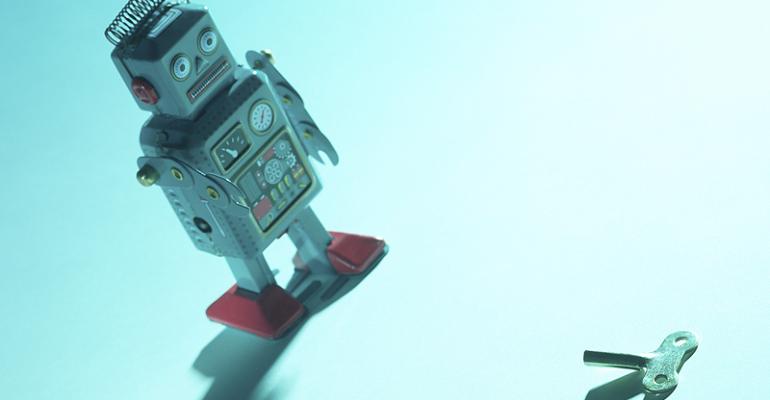 We check in for our flight with a credit card at a kiosk. We check in at the meeting's host hotel the same way. We already registered via the Web site and got our badge in the mail, and downloaded the meeting app. It was all very quick, easy, and completely impersonal. Do we care?
We check in for our flight with a credit card at a kiosk. We check in at the meeting's host hotel the same way. We already registered via the Web site and got our badge in the mail, and downloaded the meeting app. It was all very quick, easy, and completely impersonal. Do we care?
I suspect there are some who love the speed and convenience (as I do at the airport, particularly when I have an obscenely early flight and the thought of having to speak coherently with anyone holds all the appeal of a five-year-old jelly bean). I also suspect there are plenty of people who despise having to interact with machines instead of humans (as I do when something goes wrong and I'm wandering, lost, lonely, and ticked off, through the nether branches of a Web site or the twigs at the tip of a phone tree, pounding desperately at the "0" button and muttering under my breath, "What do I have to do to get a human to help me?!"). Like the little girl with the curl, when customer-interaction technologies are good, they're very very good, and when they're bad, they're horrid.
So I'm not sure how I feel about the voice recognition and natural language engine Nuance Interactive Natural Assistant, or Nina, which if it's as good as its inventors seem to think, really does threaten to take human interaction out of customer service when it comes to airlines, hotels, and who knows what else. As Nina's product manager at Nuance says in the International Business Times:
"According to research by the Hyatt Hotel group, one third of customers are already checking in at self-service kiosks in their hotel lobbies, eschewing the traditional route of the receptionist. This is indicative of a wider trend according to voice recognition experts Nuance who believe we simply never want to talk to a real human again, preferring the clipped, efficient tones of its Nina virtual assistant. Expanding this from mobile to now include the web means we could soon be living in a world where speaking to a real live human is the exception rather than the rule."
There are incentives on both sides, with Nina providing convenient assistance while costing just 10 percent of what it would cost to literally man (or woman) customer service, according to Nuance's director of product management. So maybe customer service automation, if it truly is sophisticated enough to understand what we want from it from how we express ourselves, will join manufacturing automation and all the other robots that have infiltrated our lives and work.
And perhaps take over our jobs? And not just front desk staff at hotels, or check-in people at the airport—there are already robot journalists ready to do my job. Could planning meetings be far behind? (Actually, I would argue that yours is one job that would be close to impossible to automate, but you never know.)
As Kevin Kelly writes in a very intriguing, slightly freaky article in Wired, "The rote tasks of any information-intensive job can be automated. It doesn’t matter if you are a doctor, lawyer, architect, reporter, or even programmer: The robot takeover will be epic." And that's a good thing, he says, because "They will do jobs we have been doing, and do them much better than we can. They will do jobs we can’t do at all. They will do jobs we never imagined even needed to be done. And they will help us discover new jobs for ourselves, new tasks that expand who we are. They will let us focus on becoming more human than we were."
Do you buy it?





